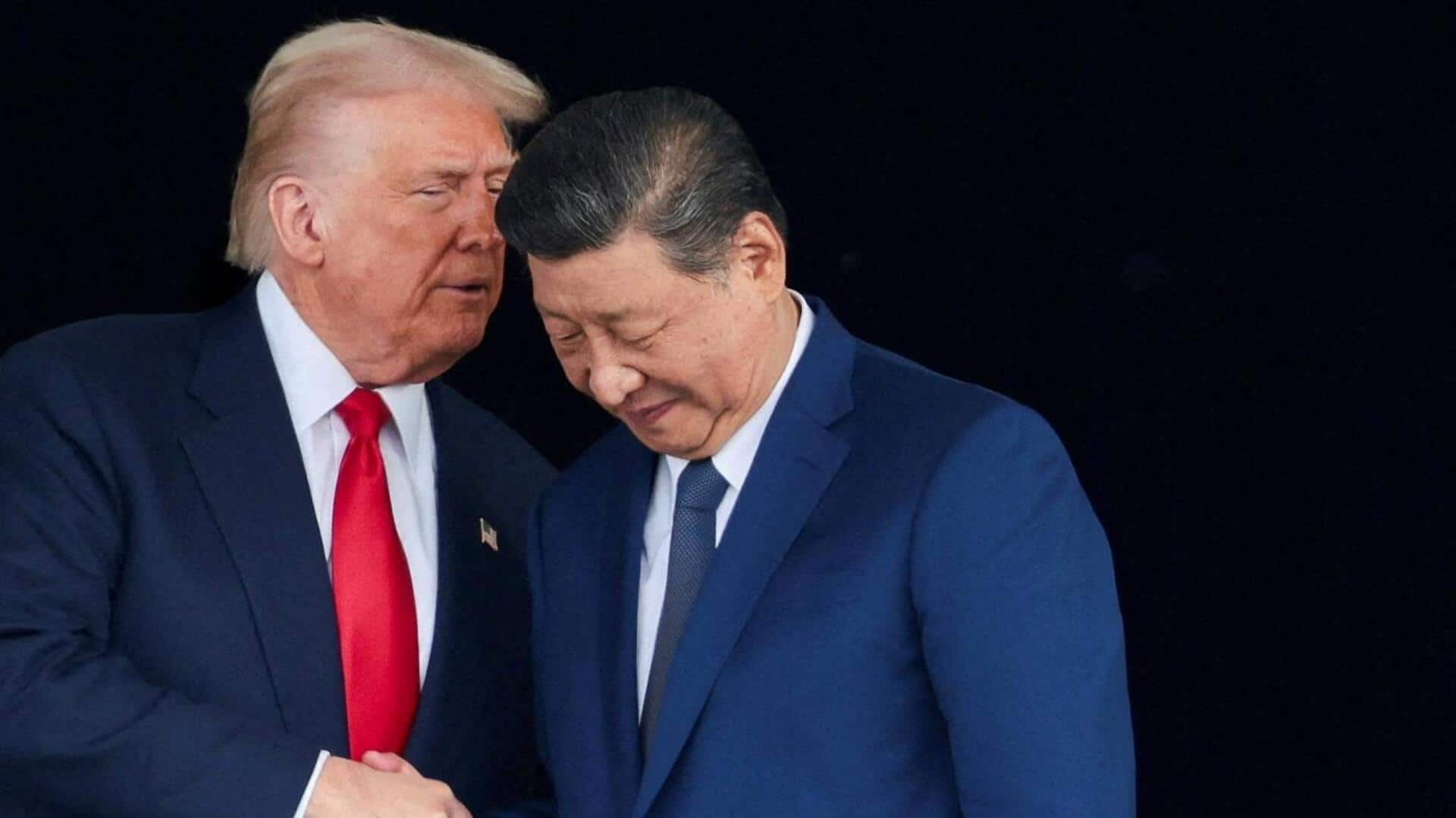
Xi assured me China won't take action on Taiwan: Trump
What's the story
United States President Donald Trump has said that Chinese President Xi Jinping has assured him that China will not take any action on Taiwan during his presidency. The assurance was given during their first in-person meeting in six years, held in South Korea on Thursday. The meeting largely focused on US-China trade tensions, and Trump mentioned on Sunday that the Taiwan issue "never even came up as a subject."
Strategic ambiguity
Trump avoids direct answer on US military intervention in Taiwan
In an interview with CBS, Trump was asked if he would send US forces if China took military action on Taiwan. He avoided a direct answer, saying, "You'll find out if it happens," referring to Xi's understanding of the situation. "I can't give away my secrets. The other side knows," he said in the interview. This is in line with the US policy of "strategic ambiguity" under both Republican and Democratic administrations regarding possible intervention in Taiwan.
Diplomatic stance
US policy on Taiwan Relations Act
The 1979 Taiwan Relations Act governs US relations with Taiwan, ensuring the island has resources to defend itself but not mandating military intervention by the US in case of a Chinese invasion. Liu Pengyu, spokesperson for the Chinese Embassy in Washington, did not confirm if Xi gave assurances to Trump about Taiwan. He reiterated China's position to AP that "the Taiwan question is China's internal affair." "How to resolve the Taiwan question is a matter for the Chinese people ourselves."
Official silence
White House silent on when Xi gave assurance to Trump
The White House has not clarified when Xi or Chinese officials assured Trump that military action on Taiwan was off the table during his presidency. This interview was Trump's first appearance on CBS since he settled a lawsuit with CBS News over an interview with then-Vice President Kamala Harris. He alleged it was deceptively edited to benefit the Democratic Party before the 2024 presidential election, initially seeking $10 billion in damages and later increasing it to $20 billion.